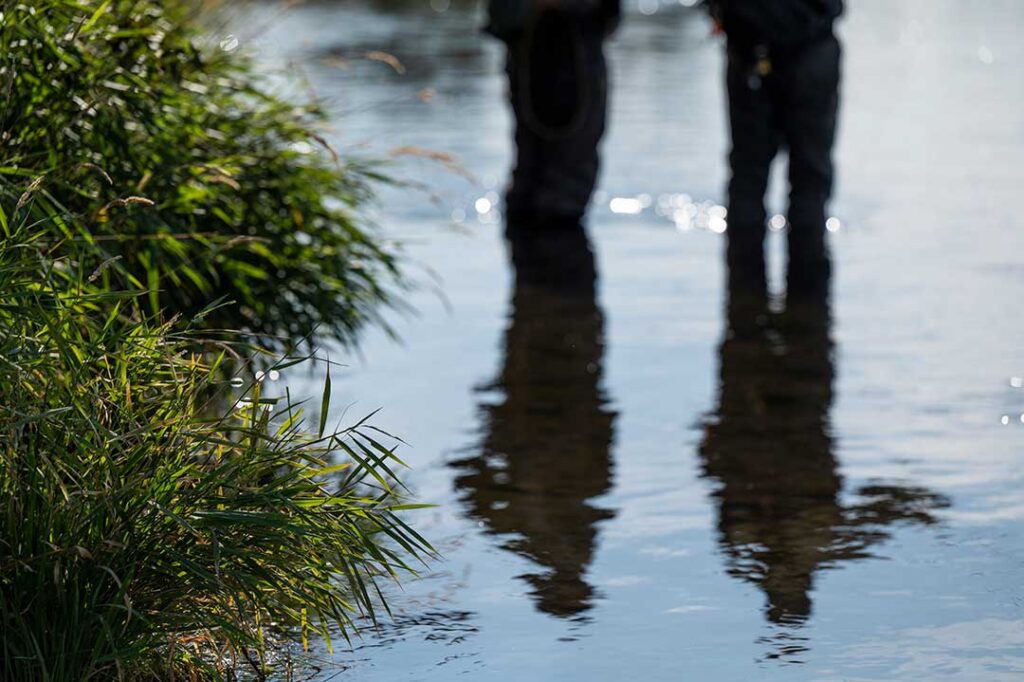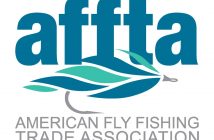
By Kirk Deeter
In the last Angling Trade newsletter, we plugged a fundraiser for the “Guide Relief Program.” It was something we were happy to do, because we like the people who work with and support that organization.
Speaking personally, I’ve had a long, loving relationship with the guide world. I guided myself for years, and I based the first couple fly-fishing books I wrote (Castwork, and Tideline) on great guide mentors (co-authored with Flylab partner, Andrew Steketee). And even now, if I’m looking for the “inside scoop” on a hot issue, 99 percent of the time, my first phone call is to a guide friend.
I’ve said for years (and still stand by it) that I think the sun rises and sets on the fly-fishing world where guides say it does. I just dedicated 100 pages of Trout magazine to the theme of “guides,” which is hitting mailboxes now, and you should check it out. I think a truly great guide is the ultimate gatekeeper, teacher, shepherd of the flock, and worth his or her weight in gold.
On the darker side, to be sure, I’ve witnessed more than I wanted when it comes to the heartbreaking aspects of the guiding world. It’s easy to think that working a river is the best “office” a person might have. But that world also comes with higher-than-average doses of ugly things like suicide, and addiction… divorce, bankruptcy, and more. I’ve lost some really good guide friends, way too soon.
I’ve also been inspired by how the guide community faces up to this, and often rallies to help its own. After Hurricane Katrina hit in 2005, “Guide for the Gulf” was a remarkable, impromptu endeavor that saw guides in Pennsylvania, and Montana, Colorado, Alaska and all throughout North America, dedicate the money they earned from a trip on the water to a pool that went to fellow guides affected by the hurricane. More recently, after Hurricane Dorian, it was the guide community, spearheaded by the Yellow Dog Community Conservation Fund, Orvis, and many others who came to help a Bahamian fly-fishing community. The list of examples goes on and on.
Like anyone else I have ever known who has spent a lot of time guiding, I am all about respecting and taking care of guides. I have advocated accordingly for more than two decades, and my record clearly proves it.
But there’s still a massive elephant in the room and I’m not afraid to talk about that either.
When COVID hit, and the crush impacted the rivers, I was the guy who called it “Rivergeddon” and said that the fly world risked crushing itself under the weight of “industrialization.” I’ve been pushing that agenda, off and on, in Angling Trade, at Trout magazine, at Field & Stream, and also when I’ve been interviewed by the New York Times, USA Today, Outdoor Life, and elsewhere, for years and years.
As we’ve seen precipitous drops in fish populations in places like the Big Hole River in Montana and elsewhere, while we can think all that’s caused by climate change and some funky “fungus-mungus” (which is surely the case, at least in part), if you’re not willing to acknowledge that fish numbers dropped in half during the same period that angler days doubled, you effectively, probably intentionally, have your head buried in the sand.
So, let’s just be honest and talk about it.
“Guide relief” is a totally worthy and respectable concept.
But after someone experiences the commercialized shit-show that regularly happens in the most popular “destination” rivers… or when peak craziness happens in certain saltwater hotspots… Nobody I know feels like belting out “We Are the World,” or holding a telethon, or hugging the nearest guide.
They think guides have ruined fly fishing as we know it by exploiting the resources as much as they possibly can, for no other reason than to make a buck with Disneyland-style day-trippers. Thank the Lord (tongue in cheek) we’ve figured out ways in the past 20 years for anyone who can chew gum and walk at the same time to catch dozens of trout in a single day. Thank goodness (no tongue in cheek) there’s still some modicum of skill required to successfully catch fish with a fly rod in the ocean.
Is it fair to dump all the crowding concern on the shoulders of guides and outfitters? Of course not. I’ll own my share having written stories that encourage people to get out and fish. And don’t even get me started on social media, “influencers” and that can of worms…
But the lion’s share of fingers (at least 20 to 1 in my experience) are pointing at guides these days. Don’t be mad at me. I’m just the messenger.
We can argue over private water all that all we want, but the truth is that fishing clubs, and pay-for-DIY-access operations are going to be wildly successful because people who actually know how to fish, and might not be able to hike miles into the backcountry, simply don’t feel like paying several hundred bucks a day to have a seasonal ski bum-turned fly guide, who knows less about fishing than them, do little more than row a boat or unlock the ranch gate on their way to the river.
Still, as I write this, I just spent the past few days fishing the chalk streams of England, and I have paid handsomely to ply certain “beats” of those rivers. They are amazingly beautiful—yet fragile—river systems. And they would be destroyed within months or a few years if they were opened to an angling free-for-all. I paid for this special trip partly because I don’t want to get high-holed on the River Test as the mayflies hatch. But mostly, I came here for the history.
But I absolutely shudder at the prospect of my great-granddaughter or great-grandson having to pay to fish “un-commercialized” trout water anywhere in the United States.
At the end of the day, it’s all going to come down to “river management,” and in some places, we’re going to have to have more serious conversations about all of this. I don’t pretend to know the answers, and I don’t think anyone truly does.
I am truly emboldened and inspired by what’s already happening—much of which is now inspired by the guide community itself—to grab a hold of this issue, contain it, address it, and fix it.
In the salt, the Saltwater Guides Association is leading the way. Support this organization.
In Montana, “FOAM” (Fishing Outfitters Association of Montana) is raising consciousness and standards, particularly via the “Guiding for the Future” initiative. Support that organization.
If you want to be a guide, and you want to do it right, go to school. Even though you don’t know what to do with your recent liberal arts degree, you need to go to school, and the best school is the Sweetwater Guide School. There are others as well.
The days of just dropping in, guiding, reefing on fish, turning as many trips as possible, minus conscience, and dedication, and concern for the long picture of fly fishing are about to end.
And almost ironically, it’s the guides—the great ones, the ones who actually care, the ones who teach, the ones who aren’t merely profiteers, who will ensure that happens.
Those guides… the real guides… the ones who know what guiding can and should be, the ones I love and respect with all my heart, absolutely deserve whatever support, encouragement, and when they need it, relief, whenever the fishing community can give it to them.




2 Comments
Amen Kirk.
There are unquestionably many solutions to the issues our waters face. And it is completely reasonable to start by looking in the mirror and making a choice – in some cases, not to fish. That’s a hard pill for outfitters and guides to swallow, but we have likely arrived at a point in time where we have to make that choice for the long term health of our beloved waters. It is supremely unpopular to suggest this to the outfitting community, but we have to be willing to ask the hard questions. That said, it is going to take so much more to actually and truly preserve and protect these fisheries, including all stakeholders and agencies being willing to sacrifice as well. I wish more people understood that their position of strength is in part due to how much they are willing to sacrifice for the greater good. If we all put stakes in the ground, we can kiss our future goodbye.
Hey Kirk,
I’ve lived and breathed the Big Hole River as a guide, outfitter and fly shop owner for 35 years. Its recent population issues are entirely related to volume of and water temperatures in late summer. Recent data from the Montana Department of Fish, Wildlife and Parks shows a minimum of a 50 percent increase and as much as a 100 percent increase in trout populations on 5 different stretches of the river this spring.
This population increase occurred after the adequate and cooler flows from last summer. The previous two years, 2021 and 2022, were to of the most severe and prolonged droughts in recent history with drought conditions persisting into October.
Certainly, angling pressure can have an impact on our fisheries, but water is the driver for populations on the Big Hole. It is important to also note that during this years spring survey, unhealthy trout were well within the range of normal according to FWP biologist Jim Olsen.
Much of the negative PR generated about the Big Hole River last year was pushed to the media by the newly formed organization Save Wild Trout. Many of us supported Save Wild Trout in their infancy, but have to come to realize that the organization is a bunch of smoke and mirrors. Their plan to “save” the Big Hole revolves around a one year water quality study in the hope that they find a smoking gun, whereupon they will litigate their findings, if any. The Big Hole does not have water quality issues. It is heavily dewatered by agricultural interests in a fairly unregulated system. It needs consistent flows in late summer.
I wouldn’t wish Save Wild Trout upon anybody. They derailed funding from other groups that are working to make a difference. They also took a large bite out of the fly fishing economy of Southwest Montana. I’m one of the more conservation minded outfitters in the area. I was bamboozled by their campaign and directed thousands of dollars to them.
Trout need water, imagine that. The rest is hysteria generated by a disingenuous group trying to fundraise from their sensationalist propaganda.